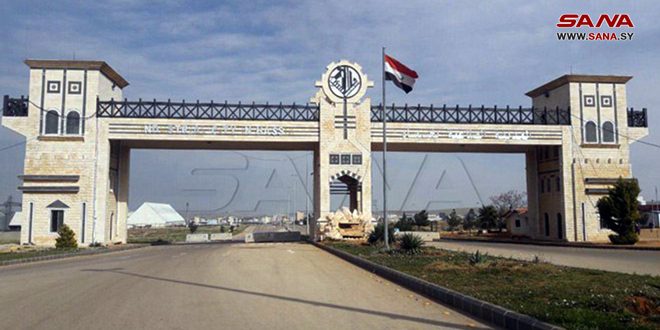Homs, (ST) – Hisya Industrial City in Homs governorate has witnessed a growth in the volume of investments that reached 181 billion Syrian Pounds and in the number of investors with the entry of 41 new investors during the past year, according to Eng. Muhammad Amer Al-Khalil, the city’s Director General.
Al-Khalil explained to SANA that the provided facilitations and investment incentives have contributed to increasing investors’ demand for licensing and implementing their projects.
A number of industrialists and new investors in the industrial city of Hisya referred to the creation of an attractive climate for investment in the city for various sectors of production and economic activities, by providing sections of various sizes and preparing the infrastructure that serves practicing all businesses.
The investor, Muhammad Al-Sayed Ali, said: “I completed all licensing procedures to establish my facility, which is specialized in the manufacturung paper tissues, within encouraging investment conditions and on an area of about 2,300 square meters.
The investor, Asim Al-Asaad, stated that he chose to license a project to produce “Zeolite”, a food additive and soil fertilizer in Hisya, due to the project’s great economic feasibility and the existence of investment facilitations and incentives at this industrial city.
The Director of the Industrial City in Hisya, Eng. Muhammad Amer Al-Khalil, said that the existing facilities and the newly licensed ones would provide high-value products, in addition to providing about 25,000 job opportunities.
For his part, the Director General of the Syrian Investment Agency Madian Diab stated that a circular was issued defining the mechanism for granting the tax reduction in accordance with the Investment Law No. 18 of 2021, which specified a 50 percent reduction of income tax, for a period of 10 years. , which includes all projects that use a local component of at least 50 percent, including projects in industrial cities and zones.
Diab added that the Syrian Investment Agency continues to provide more investment incentives and facilitations to support industry and protect the local industrial product and to facilitate the return of national investments, especially in industrial cities and zones.
Raghda Sawas

